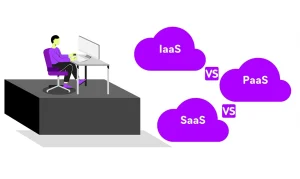Introduction
In the world of search, change is a constant. What began as a simple way to locate information on the internet has grown into a vast network of algorithms and machine learning that powers search engines such as Google and Bing. However, the future of search is set to be even more exciting as the integration of artificial intelligence and natural language processing is set to revolutionize the way we search for information. In this blog, we’ll explore how ChatGPT, BARD, and AI will impact search and what it means for businesses and consumers alike.
ChatGPT: The Power Of Conversation
ChatGPT is a natural language processing (NLP) system created by OpenAI that uses machine learning algorithms to generate human-like responses to text input. This technology has the potential to revolutionize the way we search for information by making the process more conversational and personalized.
Instead of typing in a search query, imagine being able to ask a question in the same way you would ask a friend. ChatGPT can process your question and respond with an answer that is tailored to your specific needs. For example, instead of searching for “best Italian restaurants in New York,” you could ask, “What’s the best Italian restaurant near me for a romantic dinner?” ChatGPT could then generate a response that takes into account your location, the type of atmosphere you’re looking for, and any other preferences you may have.
This type of conversational search has the potential to revolutionize the way we find information, making it easier and more intuitive than ever before. As ChatGPT continues to evolve, it’s likely that we’ll see more and more businesses incorporating this technology into their search engines.
BARD: The Importance Of Context
Another technology that is set to impact the future of search is BARD, or Bidirectional Encoder Representations from Transformers. BARD is an AI language model developed by Google that uses natural language processing to better understand the context of a search query.
For example, let’s say you were searching for “Jaguar.” Without any context, the search engine may return results related to the car manufacturer or the animal. However, with BARD, the search engine can take into account the context of the query and provide more accurate results. If you were searching for “Jaguar vs. Lion,” BARD could determine that you’re likely interested in the animals and provide results related to them.
BARD is a powerful tool for improving the accuracy of search results, particularly when it comes to longer, more complex queries. As search engines continue to incorporate BARD into their algorithms, we can expect to see more relevant and accurate results that are tailored to the user’s specific needs.
AI: The Future Of Personalization
Finally, artificial intelligence is set to revolutionize the way search engines personalize results for users. With the help of AI, search engines can analyze a user’s search history, location, and other factors to provide more personalized results.
For example, if a user frequently searches for vegan recipes, an AI-powered search engine could prioritize vegan recipe results and suggest new, relevant recipes based on the user’s preferences. This type of personalization can improve the user’s search experience and make it easier to find the information they’re looking for.
As AI continues to evolve, we can expect to see even more advanced personalization techniques being incorporated into search engines. This could include voice recognition technology that can recognize a user’s voice and provide personalized results based on their preferences.
How ChatGPT, Bard, And AI Will Impact Search?
In today’s digital era, technological advancements are revolutionizing the way businesses operate. ChatGPT, Bard, and AI are three tools that are changing the way we search for information online. With each tool comes a new set of opportunities, challenges, and benefits. In this blog, we will explore the ways these tools will impact search and how they will affect the performance marketers.
How Do These Tools Impact Performance Marketers?
Performance marketers are always looking for ways to improve their results, increase traffic, and generate more leads. The tools mentioned above can help them achieve these goals. ChatGPT and Bard are two AI tools that are changing the way we search for information online. ChatGPT is a tool that uses natural language processing to understand and respond to user queries. It is a chatbot that can help users find what they are looking for more quickly and efficiently.
Bard, on the other hand, is a tool that uses machine learning to analyze user data and predict search queries. It can help marketers understand their target audience better and create content that is more relevant to their needs. By using these tools, performance marketers can improve their search engine optimization (SEO) strategy, create better content, and increase their website’s visibility.
Will They Make The Search Experience Better?
The ultimate goal of these tools is to make the search experience better for users. ChatGPT and Bard can help users find the information they are looking for more quickly and efficiently. AI, in general, can help to personalize the search experience and provide users with more relevant results. This, in turn, can lead to a better overall experience for the user.
However, there are also some challenges that come with these tools. For example, there are concerns about privacy and data protection. AI tools need to access and analyze large amounts of data to be effective. This raises questions about who has access to that data and how it is being used. There is also the risk of bias in AI algorithms, which can lead to unfair or inaccurate results.
Conclusion
In conclusion, ChatGPT, Bard, and AI are tools that are changing the way we search for information online. They offer many benefits to performance marketers, including improved SEO, better content, and increased visibility. They also have the potential to make the search experience better for users by providing more relevant results and personalization. However, there are also challenges that come with these tools, such as privacy concerns and the risk of bias in algorithms. As these tools continue to develop and evolve, it will be important to address these challenges and ensure that they are used responsibly and ethically.







